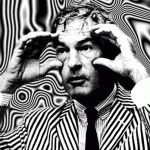Chaitanya Keerti writes in Asian Age on July 21, 2014.

We humans are emotional beings. Superficially, we may appear to be very rational, but if we observe our way of living thoroughly, we behave irrationally most of the time. Emotions play a very dominant role in our life and most of the time our vision is clouded by our emotions — in the form of anger, jealousy, hatred, greed and attachment (what we call love).
All these emotions, if we observe carefully, are rooted in our past. We become possessed by them and it takes a while for us to cool down. In the meanwhile, our present moment is ruined or poisoned. Such frequent storms in our daily life, affect our mental and physical health and these two sides of health are inter-connected. What affects the mind affects our body also. One can see all the sadness and gloominess on the face, as one can see happiness and joy.

This dominance of emotions is not a very healthy affair. We become victims of our enemies within us. We consult psychologists, psychotherapists, etc. The treatment takes a long time. But one thing that is missing from our life, and what can really help is meditation. Meditation is one of the many interventions now being increasingly recommended by physicians. The medical profession is now acknowledging the need for meditation for providing an effective alternative treatment. For thousand of years, the seekers have known this method as something similar Vipassana or Anapanasati yoga. It is not yoga. It is pure meditation of being watchful of the breath in passive alertness, with total acceptance of what is happening within and outside you.
Osho reminds us that meditation is a way to see and accept what is happening in the present moment. He has also given a very simple technique for one to be in the moment. To be in the moment is meditation — to be here and now. Neither one thinks of the past in this moment nor of the future. While being in this meditation, time stops… the world stops. The taste of meditation is in the cessation of time and the inner workings of our mind.
For people who can afford to spend more time in meditation, it is recommended to sit silently at least for one hour everyday. Don’t do anything; with closed eyes just sit silently with a waiting and open heart. Just wait patiently, ready to welcome whatever may happen. Even if nothing happens just sitting silently for one hour is in itself very relaxing — it helps us unite with our roots.
Or, you may sit under a tree. Simply feel the breeze, the air surrounding you and touching your body; listening to the ruffling sound of leaves. But don’t just let the breeze touch you; with closed eyes feel as if you are also a tree and the air is passing through you just as it passes through trees. Be open, receptive and sensitive to experience the breeze not simply passing by you, but rather passing through you.
The more we care for our wellbeing, the easier it will be for us to live even within the dysfunctional environments. Once we involve ourselves in the process of staying healthy, we recognise the fact that whatever is happening in any moment is what we need to address it there and then — sensitively, intelligently and with meditative awareness.
 Swami Chaitanya Keerti, editor of Osho World, is the author of ‘Osho Fragrance’.
Swami Chaitanya Keerti, editor of Osho World, is the author of ‘Osho Fragrance’.
Illustration by Osho News




Comments are closed.